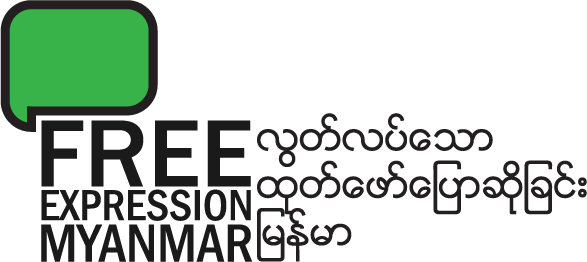Criminal media laws return, internet threatened
A new legal amendment returns media “crimes” and imprisonment to Myanmar and seeks to further control internet media.
The Second Broadcast Law “Amendment” was “adopted” by the military’s State Administration Council on 1 November 2021 without any advance notice or consultation. The original Broadcast Law was adopted in 2015 but never implemented by the NLD government which amended the law but refused to give up control over television and radio. As a result, when the military grabbed control on 1 February, Myanmar had no fully licenced independent television or radio channels, commonly found in democratic countries, and the military was quickly able to censor all broadcasters.
The military’s Amendment includes eight new articles, most of which add criminal offences to Myanmar’s law books. The Amendment rolls back a decade of legal progress by reestablishing criminal laws targeted solely at the media. Criminal media laws were last seen under the quasi-civilian Thein Sein government. The new Amendment follows a similar pattern of the recent criminalisation of free speech in the military’s amendments to the Electronic Transactions Law and the Penal Code.
Regulating internet media
Article 2 of the Amendment removes the limitation on scope that previously restricted the law to radio and television broadcasters only. In effect, the Broadcasting Law now applies to the internet too, including YouTube, Facebook, TikTok, media websites, and other platforms used to publish videos, podcasts, and similar digital versions of traditional television and radio.
Furthermore, the removal of the scope and the lack of any definition of “media” effectively mean that the law may apply to anyone online regardless of whether they are media or not. Anyone wishing to publish a video etc. would theoretically need to get a broadcast licence from the military-controlled Ministry of Information first. Anyone publishing online would also be subject to the Amendment’s new criminal offences.
According to international law, States should avoid interfering with media freedom except in the most exceptional cases. Under international standards, one allowable exception is broadcasting. As only a few channels can fit on the radio wave spectrum, States are required to use a licencing system that ensures the public has access to independent and pluralistic media. However, the internet, like paper for printed media, is unlimited, and consequently, there is no legitimate reason for licencing media online. The Amendment’s effective inclusion of internet-based media is, therefore, a violation of the right to freedom of expression and media freedom as protected under international law in Article 19 of the International Covenant on Civil and Political Rights.
Criminal offences
Articles 3 to 7 of the Amendment add four new criminal offences to the Broadcasting Law. Article 8 makes each of these new criminal offences “non-cognizable” meaning that the police may arrest without the legal safeguard of a court warrant.
Article 3 makes broadcasting without a licence punishable by up to five years imprisonment. This could be used against people involved in unlicensed (“pirate”) radio stations established after the coup. As Article 3 applies to anybody “broadcasting” over the internet regardless of location, it could also be used against media outside the country such as BBC Burmese or KIC.
Articles 4 and 6 make broadcasting when a licence has ended or been terminated punishable by up to five years imprisonment. This offence may be intended to apply to previous broadcasters such as DVB or Mizzima. Article 5 makes lying on a broadcast licence application or trying to get multiple licences, punishable by up to three years imprisonment.
According to international law, any criminalisation of expression must be necessary to address a pressing social need and be proportionate. In Myanmar, there is a pressing social need for more broadcasters, not less. Furthermore, there is a pressing social need for independent broadcasters, which, given that licences are awarded by the military-controlled Ministry of Information, is unlikely. Any criminalisation and imprisonment for broadcasting without a licence is also deeply disproportionate and can only be misused to censor. The Amendment is therefore a violation of the right to freedom of expression and media freedom as protected under international law.
Recommendations
The only institution in Myanmar with the constitutional mandate to adopt laws and amendments is the Union Parliament. Therefore, the Amendment is unlawful in its entirety. Nevertheless, FEM calls on all national and international stakeholders to remind the State Administration Council of their obligations under international law and Myanmar’s Constitution and to significantly revise any such “law” or “amendment” to reflect those obligations.
